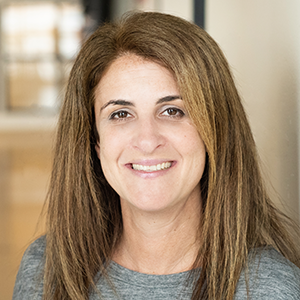Commentary
Standing Up for Students: Jamie Walker
 Jamie Walker didn’t mean to become an activist, but now that she’s gotten a taste of what an informed and involved citizen can do, she isn’t ready to stop. Her persistence and willingness to stay in the fight, even after her local school district brought legal action against her in the Court of Common Pleas, led to her uncover how the local and state teachers’ unions played a role in keeping schools in her district closed, against the advice of the local public health director.
Jamie Walker didn’t mean to become an activist, but now that she’s gotten a taste of what an informed and involved citizen can do, she isn’t ready to stop. Her persistence and willingness to stay in the fight, even after her local school district brought legal action against her in the Court of Common Pleas, led to her uncover how the local and state teachers’ unions played a role in keeping schools in her district closed, against the advice of the local public health director.
Jamie was once a teacher, and she comes from a family of teachers, so when schools shut down in the early days of the COVID-19 pandemic, she knew firsthand the effects this could have on kids. She worried not just for her own children but for others as well.
“I know how important it is for kids to go to school. The routine, going to school every day—I just felt like we needed to get kids back to school as quickly as possible,” she said.
As the year unfolded and children in her school district were kept out of schools completely, then later allowed back only part time, Jamie and a group of other parents decided to fight back.
In the early days of the pandemic, most parents, including Jamie, could see the logic behind shifting to online learning, but by June, Dr. David Damsker, the local public health director in Bucks County (where Jamie lives), could see the virus was not as dangerous for children as it was for older adults, so he recommended that schools open for in-person learning in the fall.
John Kopicki, then the superintendent of the Central Bucks School District, at first agreed, and said schools would reopen in the fall. But then he backtracked—first by saying schools would be hybrid in the fall, and then deciding to keep schools closed completely until November. Parents scrambled to figure out how to make online schooling work.
Jamie had already connected with other parents in a Facebook group called ReOpen Bucks over an effort to get area playgrounds to reopen, so when it became clear that schools wouldn’t open in the fall, they shifted their efforts to putting pressure on the local school board and school district to open the schools—and they wanted to know who was behind the school closures.
“We all knew the union was involved. We just knew it,” said Jamie. “We just couldn’t prove it.”
In September, Jamie, backed by the other parents, filed a Right to Know request with her school district, asking for emails between school officials on reopening plans.
At first, the district stalled and asked for a 30-day extension. Then, after the end of the extension period, they ignored her emails and phone calls.
“At this point, we’re saying, ‘What do we do now?’ We’ve never done this before,” she said.
One of the other parents knew a woman, Dianemarie Haring, who had fought her school district for information and won, and she helped Jamie formulate a statement to the school board, which she presented at a meeting in November.
The next day the documents started coming.
But the information the district sent her seemed incomplete, so with Dianemarie’s help, Jamie filed an appeal, which she won. But then the district took her to the Court of Common Pleas in an effort to keep three emails from her. Jamie and her friends in the parents’ group crowd-funded the money to pay an attorney to fight the district in court.
“The district took me to court with my tax money,” she said. “I basically sued myself, except I had to hire my own lawyer.”
As more information came out, thanks in part to an op-ed written by Jamie that appeared in Broad and Liberty, the dominoes kept falling. Dr. Damsker was finally invited to a school board meeting. Jamie won the right to see the three emails, which gave more insight into Kopicki’s role in keeping schools closed. He then resigned, and the district gave Jamie her right to know fees back.
Jamie is also involved in work to counter the political power of the Pennsylvania State Education Association (PSEA) in local school board elections.
“The trust is gone,” she said. “When you have powerful special interests like unions endorsing school board candidates, it leads to questionable—and sometimes unethical—decision-making.”
Jamie is still getting more documents from the district, months after she filed her first request. And she’s still fighting to make school normal for kids again. One of her latest battles is to get schools in her district to let kids eat lunch—students are only given 10 minutes to eat a snack during the day.
“It’s time to get back to normal,” she said.